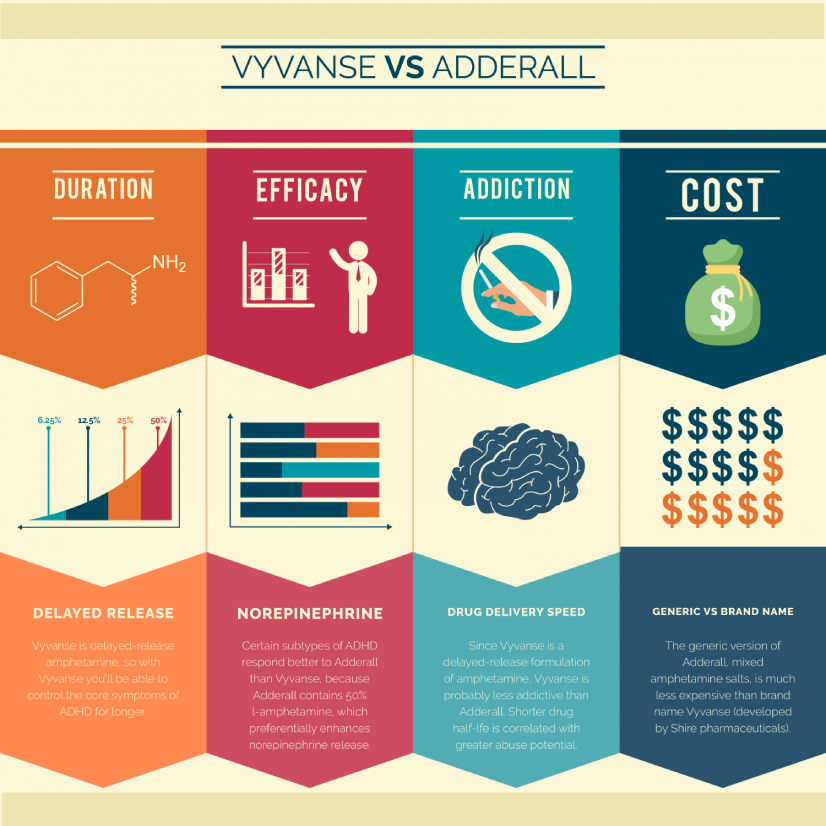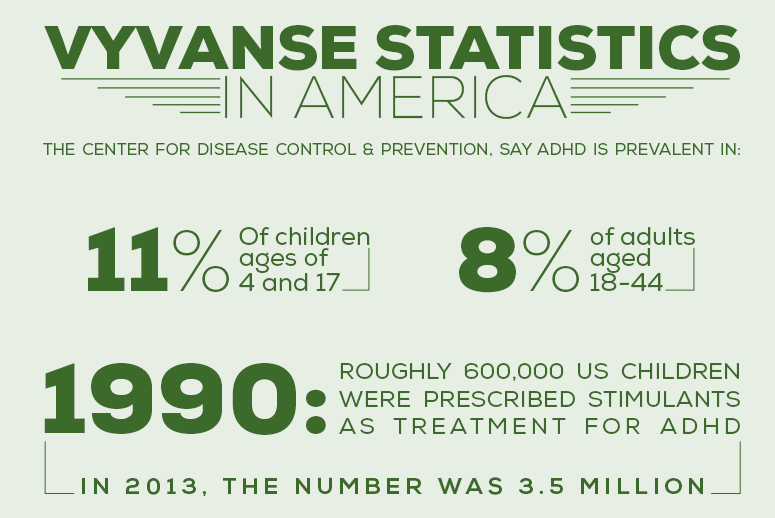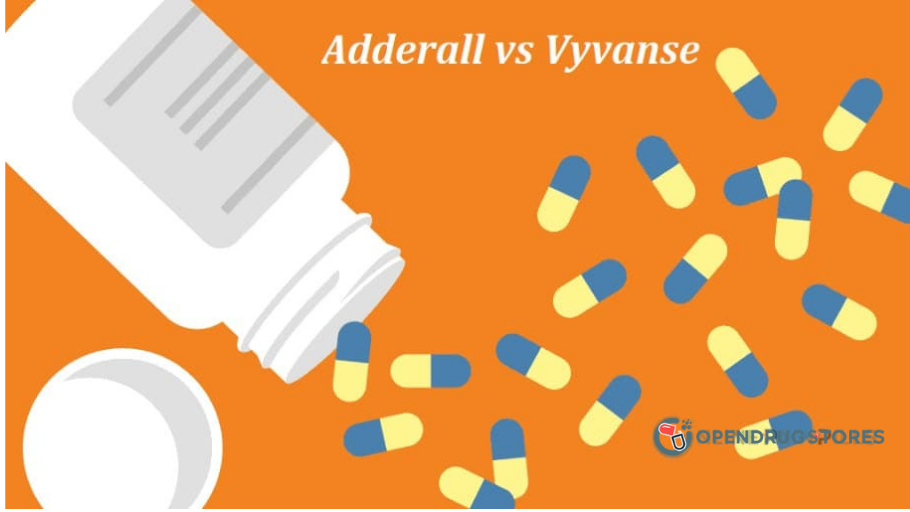Table of Contents
Nowadays, there are several alternatives for the treatment of Attention Deficit Hyperactivity Disorder. Stimulant drugs, such as, increase the levels of certain neurotransmitters to improve focus and concentration and to reduce hyperactive and impulsive behavior.
Vyvanse and Adderall are two popular stimulants used to treat ADHD. Sometimes, they may be used in narcolepsy management. Both stimulants can be useful, but the differences in some of their effects may make one of them a more appealing selection for you.
Vyvanse Vs. Adderall
Adderall was approved in 1996 by the Food and Drug Administration while Vyvanse has been available since 2007. Therefore, we can say Adderall has been around longer than Lisdexamfetamine or Vyvanse.
Since both medications are amphetamines (CNS stimulants), both work pretty much in the same way. Adderall and Vyvanse stimulate the central nervous system and increase the number of neurotransmitters like dopamine and norepinephrine in the human brain.

Uses: Adderall and Vyvanse
Adderall and Vyvanse are both approved to treat attention deficit hyperactivity disorder in people 6 years and older. In fact, they included in the group of medications used as first-line treatment for teenagers or children with ADHD to focus their attention on studying in the classroom.
Vyvanse and Adderall are both considered controlled substances. Long-term use of such medications can cause addiction.
Adderall is more likely to be abused than Vyvanse as the body needs to break Vyvanse down before it can start to work. With amphetamine – there is also a risk of stimulant misuse because of its euphoric effect. Unlike other medications, Vyvanse can’t be inhaled or injected to get high.
Dosage: Adderall and Vyvanse
The way someone uses these drugs and the way they are released into his or her body can lead to significant differences between them. Adderall occurs in two forms immediate-release tablets and extended-release capsules.
Immediate-release tablets: People may take these tablets twice or thrice a day. The effect of each pill lasts up to three to four hours.

Extended-release capsules: People may take these capsules once a day. The effect of this form lasts up to 12 hours as these tablets provide two doses in one pill.
On the other hand, Vyvanse only occurs in the delayed-released capsule form that you use each morning. When used orally, these pills are inactive, but once your body digests, they slowly convert into their active form. The effect of these delayed-release capsules lasts up to 14 hours.
Effectiveness: Adderall and Vyvanse
Vyvanse and Adderall are both effective in improving ADHD symptoms. But still, it isn’t easy to say which one of these drugs works better than another one. Some head-to-head studies have compared Vyvanse and Adderall XR.
It is a fact that each user reacts differently to medication because of several factors. Adderall may work for one person, while another may respond better to Adderall.
Cost: Adderall and Vyvanse
The brand name versions for both Vyvanse and Adderall are similar in value. Adderall is also available in a generic version, but Vyvanse is not. Generic drugs are much less expensive than brand-name versions.
Several factors can affect these drugs’ prices, including insurance coverage and coupon discounts. It is best to purchase a prescription based on how it works for you rather than what it costs.
Stimulant side effects: Adderall and Vyvanse

Since Vyvanse and Adderall are both stimulant medications, they share similar side effects. Their side effects can include the following.
- Diarrhea, anxiety, dizziness, headache, dry mouth
- Nausea, loss of appetite, stomach pain
- Weight loss and vomiting, etc.
Less common side effects can include:
- Increased heart rate, hallucination (hearing or seeing a thing that is not actual)
- High blood pressure and mania (periods of intense excitement)
- Shortness of breath and paranoia (a feeling as though someone is out to get you)
In some unsuitable conditions, both drugs can increase the risk for serious heart problems, including high blood pressure, increased heart rate, stroke, heart attack, and even death. Users should get a heart checkup and tell their doctor about their heart problems before they initiate their therapy with Adderall or Vyvanse.
Vyvanse and Adderall interactions
Considering other medicines may help you decide which ADHD medication is right for you. Vyvanse and Adderall can both interact with certain other strong drugs or chemicals. Some specific examples can include:
Alkalinizing agents: These substances include sodium bicarbonate, the main ingredient in baking soda. These agents are the opposite of acids, and they might increase the absorption of either drug.
Acidifying agents: They include fruit juice and ascorbic acid. These acidic ingredients might lower the quantity of the drug that gets absorbed by the human body.
Making a choice: Adderall vs Vyvanse
Adderall and Vyvanse have both been shown to be useful for ADHD management. The highest difference between Adderall and Vyvanse are in the forms, their potential for abuse, and how often an individual takes it.
Work with your healthcare provider, or psychiatrist to choose the medication that will work best for you or your child. Selecting the right ADHD medication is sometimes a matter of trial and error. If the first alternative you take does not work well enough, you can talk to your doctor about additional medicines.


Great content! Effective details and better explained content.